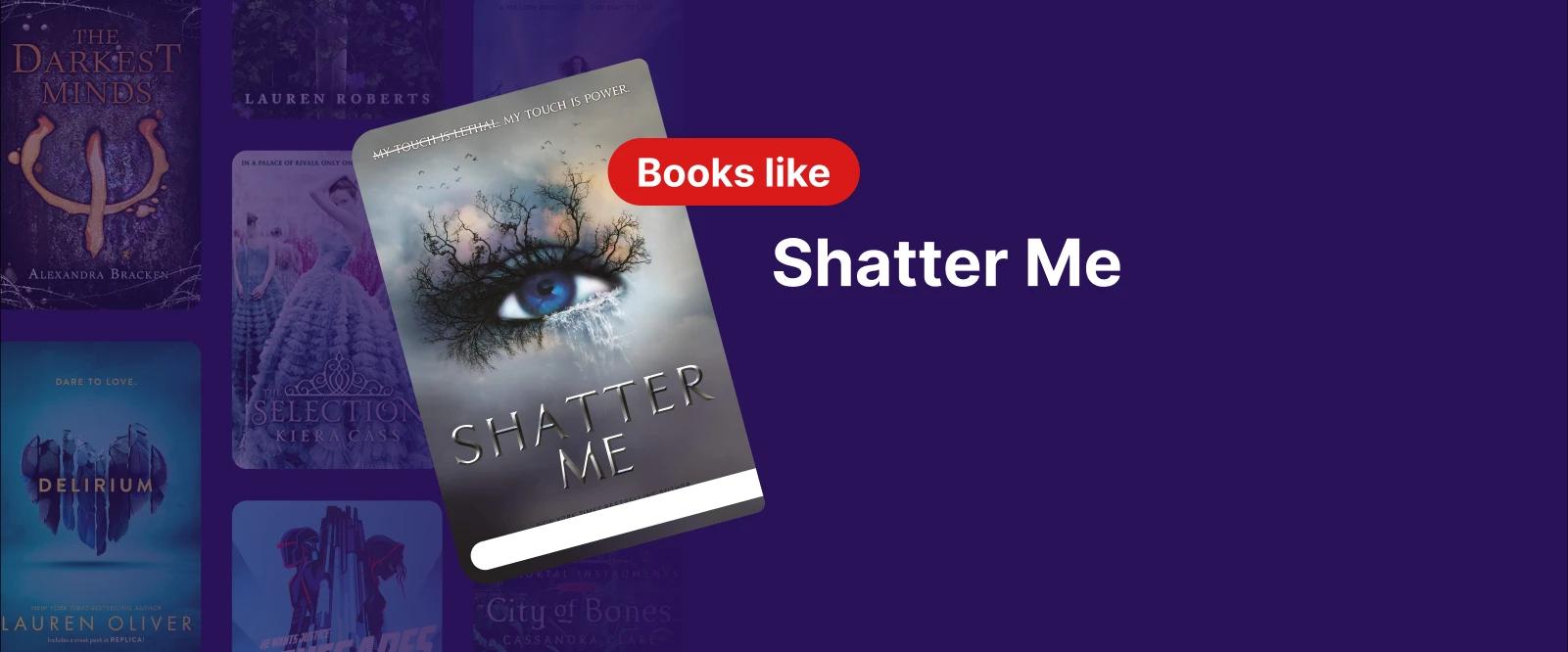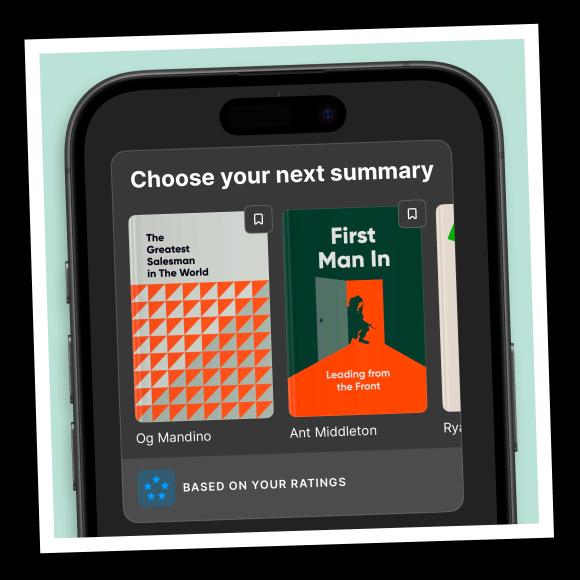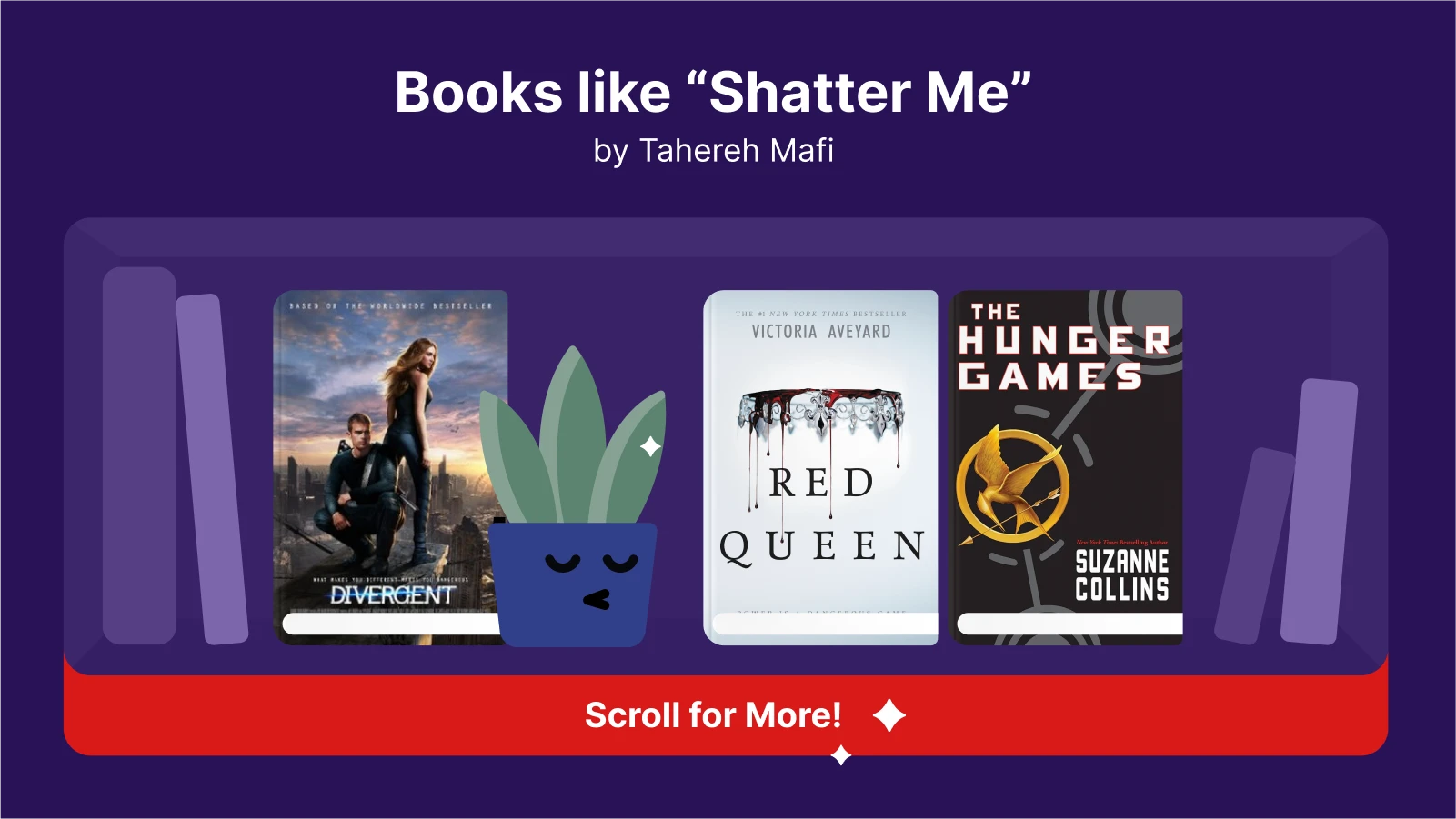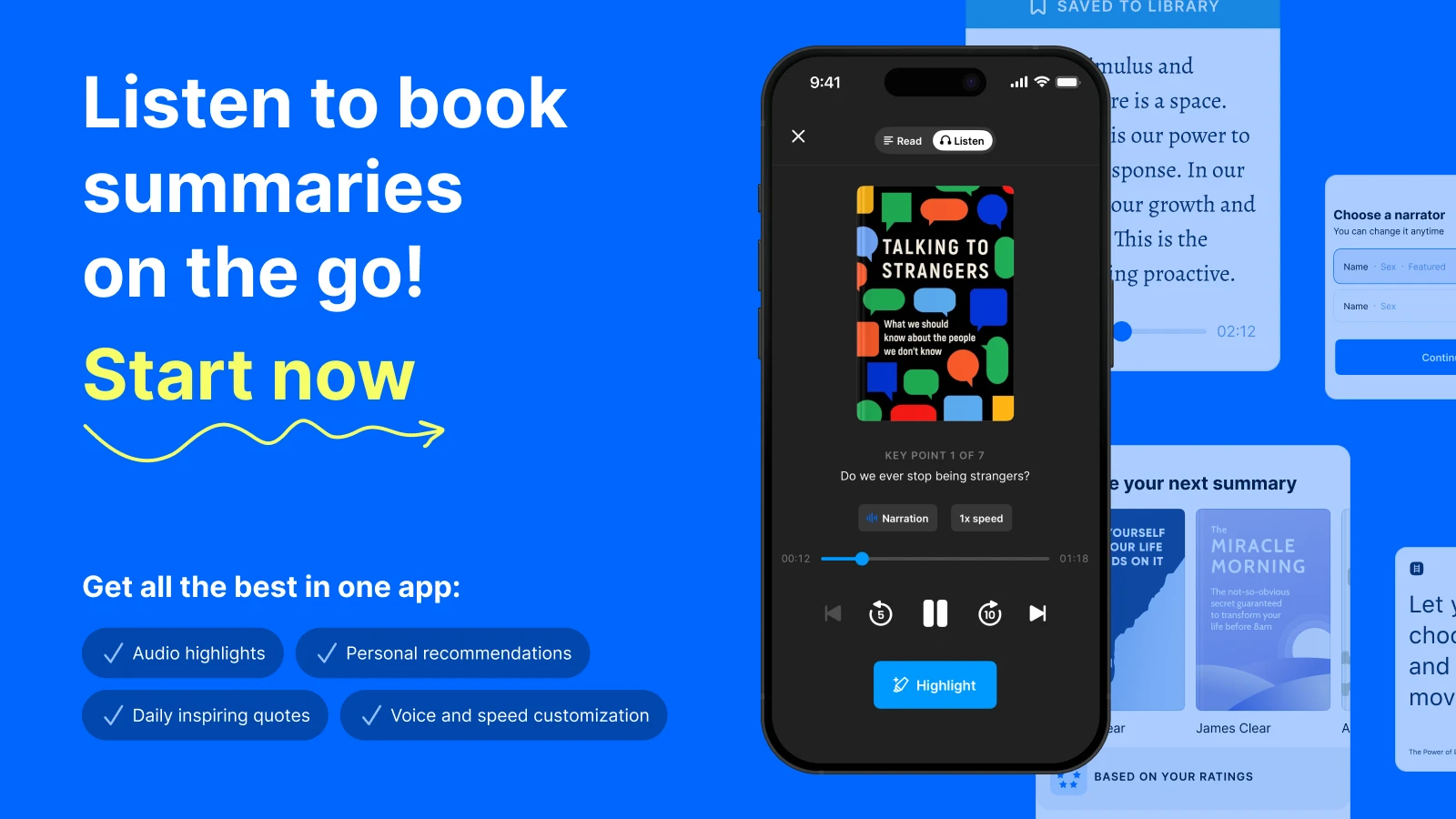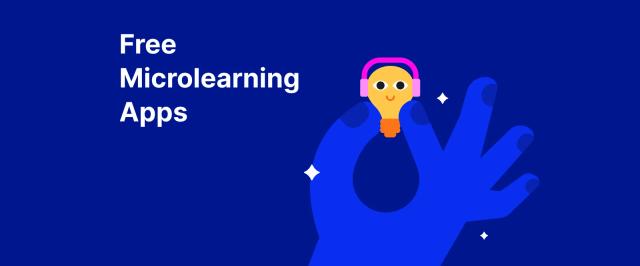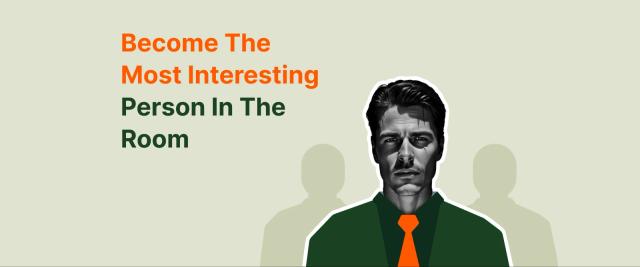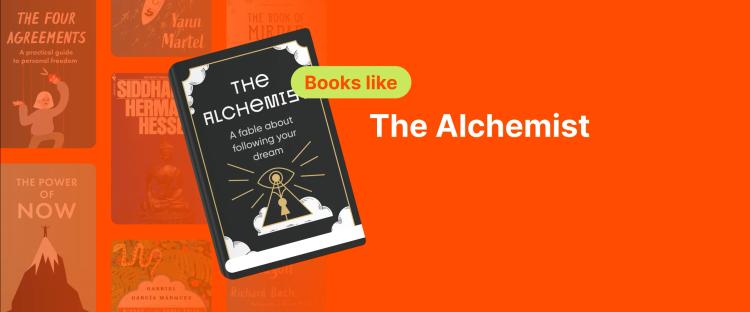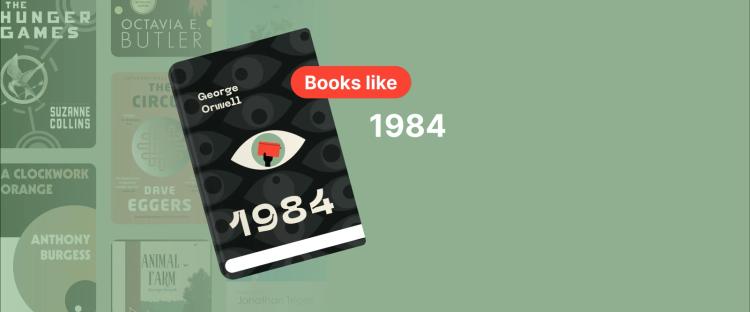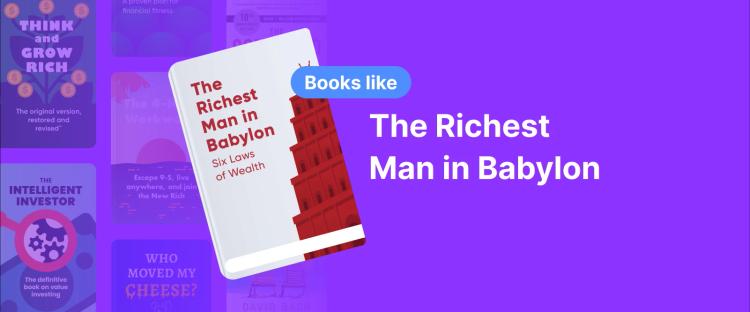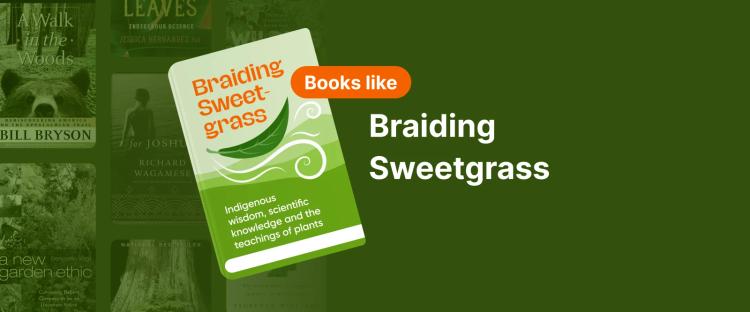No wonder that after finishing the 'Shatter Me' series by Tahereh Mafi, regular books feel like eating plain toast after a five-course meal. Book recommendations below, get it. They know you need your strong heroine to have actual problems, not just choose between two equally nice guys who worship her. Pick one or save all list to prolong the treat.
And if you're hooked on dystopian romance but have responsibilities, try Headway. We turn bestselling books into 15-minute summaries you can devour between a million other things. Because sometimes you need a great book but can't commit to another 400-page emotional roller coaster.
Download Headway and get your next hit without the reading hangover.
Quick answer: What are seven must-read books like 'Shatter Me'?
'Divergent' by Veronica Roth. Faction-based society, deadly initiation, and Tris proving strong heroines don't need to be likable to be compelling.
'Red Queen' by Victoria Aveyard. "Anyone can betray anyone," plus powers that'll make you rethink everything about dystopian fantasy.
'The Hunger Games' by Suzanne Collins. The OG dystopian series that started it all still holds up against any newcomer.
'The Darkest Minds' by Alexandra Bracken. Kids with powers locked away by adults who fear them (sound familiar?).
'Delirium' by Lauren Oliver. Love is literally illegal, which somehow makes the romance even better.
'Powerless' by Lauren Roberts. The newest addition mixes Hunger Games trials with X-Men powers.
'The Selection' by Kiera Cass. Bachelor meets dystopia with America Singer navigating palace politics.
13 books for fans of 'Shatter Me' who aren't ready to leave dystopia
We tested a lot of books that claimed to be "perfect for Shatter Me fans," and most of them lied. These 13 actually deliver on the promise. They've got the emotional intensity you're craving. The love interests are properly morally gray (not just misunderstood bad boys). And world-building? Complex enough to respect your intelligence.
Some are more romantic, others are more action-packed. All of them get one thing right: dystopian fiction touches different when the characters feel real. Not just archetypes facing danger, but actual people making impossible choices that hurt.
📘 Not ready to leave dystopia? Get Headway for all 13 emotionally intense reads in under 4 hours!
1. 'Divergent' by Veronica Roth
You know that feeling when society sorts you into boxes, but you don't fit? That's Tris Prior's entire life. The Divergent series throws you into a future Chicago where people divide into five factions based on virtues. Tris is 'Divergent' — she doesn't fit one box, which makes her dangerous.
The romance with Four has that same intensity as Juliette and Warner, complete with training sequences that are basically foreplay. Roth doesn't pull punches either; characters you love will die, and the ending of the trilogy... let's just say fans are still processing it years later.
Why 'Shatter Me' fans love it:
A strong heroine discovers her power while society tries to control her.
Forbidden love with someone who sees past her dangerous reputation.
World-building that makes you question everything about human nature.
2. 'Red Queen' by Victoria Aveyard
Mare Barrow is a Red blood living under Silver elite rule until she discovers she has powers that shouldn't exist. This book takes the dystopian world and adds a twist that'll make you scream at 3 AM.
Aveyard created a series where literally anyone can betray anyone — the tagline isn't lying. Plus, Maven might be the most complicated villain/love interest since Warner himself.
Why it works:
Powers that come with terrible costs.
A dystopian romance that questions who deserves redemption.
Plot twists that fans are still arguing about on Reddit.
Obsessed with betrayal and family loyalty like the Reds vs. Silvers drama? 'Clanlands' swaps dystopian warfare for actual Scottish clan history — complete with whisky, ancient feuds, and the kind of ancestral drama that makes fictional betrayals look tame.
3. 'The Hunger Games' by Suzanne Collins
Before everyone was writing dystopian series, Suzanne Collins dropped this bomb and changed YA forever. Katniss volunteers for the death games to save her sister, accidentally starts a revolution, and deals with a love story she never asked for. The post-apocalyptic world of Panem feels more relevant now than when it was published.
If you somehow missed this science fiction masterpiece, fix that immediately. The movies are great, but the books are different. Especially Mockingjay's examination of PTSD and propaganda.
The connection:
Government control through fear and spectacle.
A heroine who becomes a symbol despite herself.
Romance is complicated by survival and politics.
4. 'The Darkest Minds' by Alexandra Bracken
Ruby wakes up on her tenth birthday with powers that terrify everyone, including herself. The Darkest Minds series puts kids with abilities in camps because adults fear what they can't control (subtle, right?). The color-coded power system feels fresh, and Ruby's struggle with her abilities mirrors Juliette's perfectly.
When she meets Liam, their romance develops through road trips and rebellion rather than instalove. Bracken knows how to write found family that'll wreck you harder than biological family drama.
Perfect if you want:
Powers tied directly to trauma and self-acceptance.
Young adult fantasy that doesn't talk down to readers.
A love story built on trust rather than attraction.
If the found family dynamics hit you hard, 'Hidden Valley Road' explores a real family facing something equally devastating — six sons diagnosed with schizophrenia and the bonds that hold (or break) when crisis hits home.
5. 'Delirium' by Lauren Oliver
Imagine love being classified as a disease called deliria, and the government surgically removes your ability to feel it at 18. Lena's counting down to her procedure until she meets Alex and realizes maybe feeling is worth the risk.
Oliver makes forbidden love literal in this dystopian world where emotion equals danger. The writing is gorgeous — like prose poetry about the end of the world. Fair warning: the ending of book one will destroy you in the best way.
Why you'll obsess:
Forbidden love taken to its logical extreme.
Beautiful writing that makes dystopia feel like a fairy-tale gone wrong.
A best friend subplot that's just as important as romance.
6. 'Powerless' by Lauren Roberts
The newest entry mixes Hunger Games trials with superhero powers, and readers are losing their minds. Payton is ordinary in a world where everyone has abilities — until she's forced to compete in the Trials, where she'll definitely die unless she can fake having powers and not fall for the guy trying to kill her.
Roberts knows exactly what fans of 'Shatter Me' want: deadly competitions, powers that define society, and tension you could cut with a knife. It's new adult fiction that reads like YA's older, sexier sibling.
Fresh but familiar:
Power dynamics (literally) driving the plot.
Romance with someone who should be your enemy.
A dystopian series just getting started.
Already read 'Powerless'? You're in luck — we've rounded up more books that deliver the same thrill and emotion.
📘 Obsessed with power, politics, and forbidden romance? Try Headway for dystopian reads that explore control, rebellion, and enemies-to-lovers tension!
7. 'The Selection' by Kiera Cass
America Singer (yes, that's her name) gets chosen for a televised competition to marry the prince. Think The Bachelor meets dystopia with actual stakes. The Selection series gets dismissed as fluffy, but Cass builds a world where this fairy-tale competition masks serious political unrest.
The love triangle between America, Prince Maxon, and her first love, Aspen, serves the story. Plus, America navigating palace politics while wearing ball gowns and planning a revolution? Chef's kiss.
Guilty pleasure that delivers:
Romance that drives the dystopian plot.
A heroine who stays true to herself despite pressure.
World-building disguised as reality TV.
Love stories that spark revolutions? 'Hamilton: The Revolution' shows you the real creative rebellion behind Broadway's biggest phenomenon — where ambition, legacy, and changing history collide offstage just as dramatically as they do in the show.
8. 'Renegades' by Marissa Meyer
What if superheroes ruled the world and you were raised by the villains? Nova wants revenge on the Renegades who failed to save her family, but then she goes undercover and meets Adrian.
Meyer flips the superhero genre into dystopian territory where the good guys might be fascists, and the villains have valid points. The slow-burning romance will kill you slowly, while the plot twists hit fast.
Superhero dystopia done right:
Powers that come with moral complexity.
Enemies-to-lovers executed perfectly.
A strong heroine questioning everything she believes.
9. 'Under the Never Sky' by Veronica Rossi
Aria lives in domes protected from the wasteland outside until she's exiled and must survive with Perry, an Outsider savage. Except he's not savage, the wasteland has its own beauty, and everything she knew was propaganda.
Rossi creates a post-apocalyptic world where the sky literally storms with psychedelic energy. The dual POV lets you fall for both characters separately before shipping them desperately. This dystopian romance balances survival action with actual character development.
Underrated gem:
World-building that feels genuinely original.
Romance is built through mutual respect and growth.
Science fiction that doesn't forget the human element.
Craving that mutual respect and emotional growth in relationships? 'Hold Me Tight' on Headway unpacks the real science behind what makes love last — Dr. Sue Johnson's seven conversations might just explain why you ship Aria and Perry so hard.
10. 'The Mortal Instruments' by Cassandra Clare
Clary thinks she's normal until she sees demons and discovers she's a Shadowhunter. The Mortal Instruments series technically counts as urban fantasy, but the hidden world of Nephilim fighting demons while the mundane world stays oblivious creates its own dystopian feel.
Clare writes battle scenes and sarcastic dialogue with equal skill. The love triangle resolves in ways that'll make you throw the book (then immediately pick it up again). Six books mean more time with characters you'll adopt as a fictional family.
Urban dystopia:
Hidden worlds within our own.
Powers inherited but not understood.
New York Times bestseller for good reason.
📘 Want a whole fictional family? Get Headway for urban fantasy secrets from world-building masters!
11. 'The Field Guide' by Holly Black and Tony DiTerlizzi
The New York Times bestselling author Holly Black created the Spiderwick Chronicles with co-author Tony DiTerlizzi, starting with The Field Guide. This series skews younger than typical YA books, following siblings who discover a field guide to faeries in their new house. But don't let the age range fool you.
Black and DiTerlizzi build a quietly dystopian world where magical creatures exist alongside humans. And those creatures? Not always friendly.
Gateway dystopia:
Our world but wrong.
Knowledge that puts you in danger.
Perfect for younger fans of 'Shatter Me'.
12. 'Uglies' by Scott Westerfeld
In Tally's world, everyone gets surgery at 16 to become Pretty. She can't wait until she discovers what the operation really does to your brain. This dystopian science fiction novel predated the YA dystopia boom but helped create it. Westerfeld tackles beauty standards, conformity, and environmental destruction without preaching.
The hoverboard scenes still feel fresh, and the Smoke rebellion introduces ideas about choosing your own path. Each book in the series goes deeper into this post-apocalyptic world's history.
Ahead of its time:
A dystopian world that feels increasingly possible.
Romance complicated by literal brainwashing.
Science fiction that predicted social media culture.
If Tally's discovery that conformity doesn't equal happiness hits different, 'If You're So Smart, Why Aren't You Happy?' explores why chasing society's definition of "perfect" might be exactly what's blocking your joy — no brain surgery required.
13. 'Prodigy' by Marie Lu
June was the Republic's prodigy until she met Day, the most wanted criminal. Prodigy, the second book in the Legend series, deepens their love story while expanding the dystopian world.
Marie Lu writes action sequences that feel cinematic and romance that develops through respect and partnership. The dual POV shows both sides of this future America's civil war. Lu doesn't shy away from hard choices — characters make decisions that hurt but feel real.
Military dystopia with heart:
Strong heroine who's actually a trained soldier.
Love story between enemies that feels earned.
Post-apocalyptic America that mirrors real divisions.
Make your TBR list manageable with Headway
Let's be real — you just added 13 books to your already massive TBR pile. Between work, life, and rereading 'Shatter Me' for the fifth time, when exactly do you plan to read them all?
Headway gets it. We turn these books into 15-minute summaries that capture the key insights without the 400-page commitment. Perfect for sampling before you commit or getting your fix between full reads. Text or audio, your choice.
Download Headway and stop feeling guilty about that growing TBR list.
FAQs about books like 'Shatter Me'
What is the 'Shatter Me' series about?
The series follows Juliette Ferrars, who has a lethal touch in a dystopian world controlled by the Reestablishment. Starting as a prisoner, she discovers her power isn't a curse but a gift. The series spans six books, tracking Juliette's evolution from scared girl to powerful leader.
Why do readers love Tahereh Mafi's writing style?
Mafi uses strikethrough text to show Juliette's inner thoughts, creating an intimate reading experience. Her prose is sometimes experimental, but she writes emotions in a way that makes readers feel them viscerally. The style evolves as Juliette grows stronger, making the writing itself part of the character development.
Is 'Shatter Me' appropriate for young readers?
'Shatter Me' contains mature themes, including violence, trauma, and intimate scenes that get steamier as it progresses. Books 4-6: learn more new adult fiction with increased romantic content. Most readers suggest 14+ for the first trilogy, 16+ for the later books. Parents should preview if concerned.
Should I read the novellas in the 'Shatter Me' series?
Yes, especially 'Destroy Me' (Warner's POV) and 'Fracture Me' (Adam's POV). They provide crucial context for character motivations and fill plot gaps. Reading order matters: read 'Destroy Me' after book one, 'Fracture Me' after book two. Skip them, and you'll regret missing character development.
What makes 'Shatter Me' different from other dystopian series?
The focus on internal struggle sets it apart since 'Shatter Me' centers on Juliette's psychological journey. The romance drives the plot rather than supplementing it. Mafi's experimental writing style and Warner's complex character arc elevate the novel beyond the typical dystopian romance.
Which book is most similar to 'Shatter Me'?
'The Darkest Minds' by Alexandra Bracken captures the same energy best. Both feature heroines with dangerous powers they fear, romance with someone who helps them accept themselves, and governments that weaponize children. The emotional intensity and focus on self-acceptance through love feels remarkably similar. Both series also excel at found family dynamics alongside romantic relationships.

